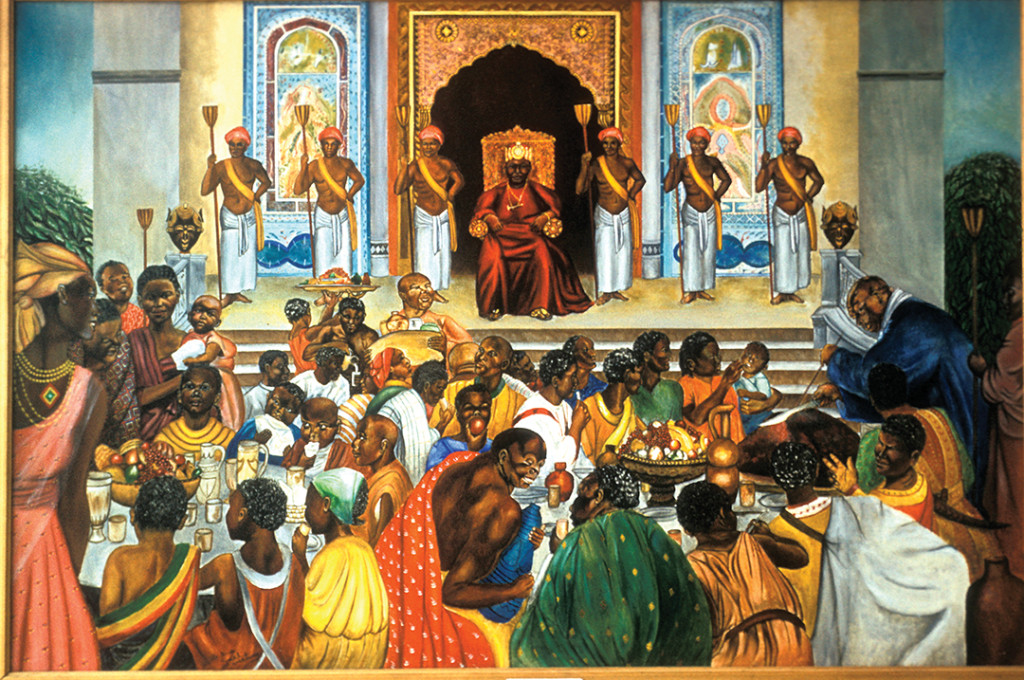ADF STAFF
King Tenkamenin ruled the Kingdom of Ghana with style. He insisted on good etiquette. His airy, windowed court was built with teak and stone and filled with paintings and sculptures. The king wore fine clothes and a tall gold cap, and he adorned himself with gold necklaces and bracelets. In his court, 10 pages carrying gold shields and swords stood behind him. Ten horses were nearby, each with a gold-trimmed cloth. Finely dressed sons of lesser kings stood at his right, each with gold-braided hair.
His subjects approached him on their knees, sprinkling dirt on their heads as a show of humility and respect. When he traveled, it was to the accompaniment of beating drums.
But appearances can be deceiving. Despite his lavish, expensive lifestyle, he was in many ways a fair and visionary ruler. And under his rule, his country prospered.
In Tenkamenin’s time, the Kingdom of Ghana, in what are now parts of Mali and Mauritania, was one of the richest, most powerful regions on earth. It was said that there were no poor people in his kingdom, and few uneducated ones. The king encouraged his subjects to learn about the outside world.
He personally visited his subjects on horseback to hear their grievances and was adamant in hammering out solutions. When he conquered surrounding states, he let them continue with self-governance, as long as they paid taxes — and attention — to him.
Tenkamenin was born in 1037. As was the custom of his kingdom, he was heir to the throne by virtue of being the son of the king’s sister. He was crowned at age 25.
Spanish historian Al-Bakri never visited the kingdom, or any part of Africa, but wrote detailed accounts of Tenkamenin’s rule that are used in research to this day. Based on travelers’ accounts, he explained Tenkamenin’s system of governing and finance:
The king imposed an import-export tax, payable in gold, on spices, copper, ivory and ebony. He controlled, and taxed, the sale of salt, a critical commodity. The king guaranteed the safety of merchants who paid their taxes. Ghana became the hub for trade throughout Western Africa.
Tenkamenin helped establish an honor system of trade in his kingdom that encouraged fairness. He also had a form of tax on the region’s gold mines — all gold nuggets found went to him, while all gold dust was traded. Under that system, gold inflation was kept in check, and he controlled the reserves.
Ghana’s time as a powerful nation did not endure. After Tenkamenin’s death in 1075, the kingdom’s central power diminished somewhat as wealthy merchant families intermarried and became larger players in governance. Muslims in the region became more influential, and some took up arms against their rulers. Trade routes were cut off. The subjects of the kingdom became disenchanted with their rulers. And finally, the region was decimated by a series of droughts. Ghana’s era as the “Kingdom of Gold” came to an end.
Above: This mural in Accra, Ghana, depicts a feast scene from the Kingdom of Ghana. THE UNIVERSITY OF WISCONSIN-MILWAUKEE AMERICAN GEOGRAPHICAL SOCIETY LIBRARY

